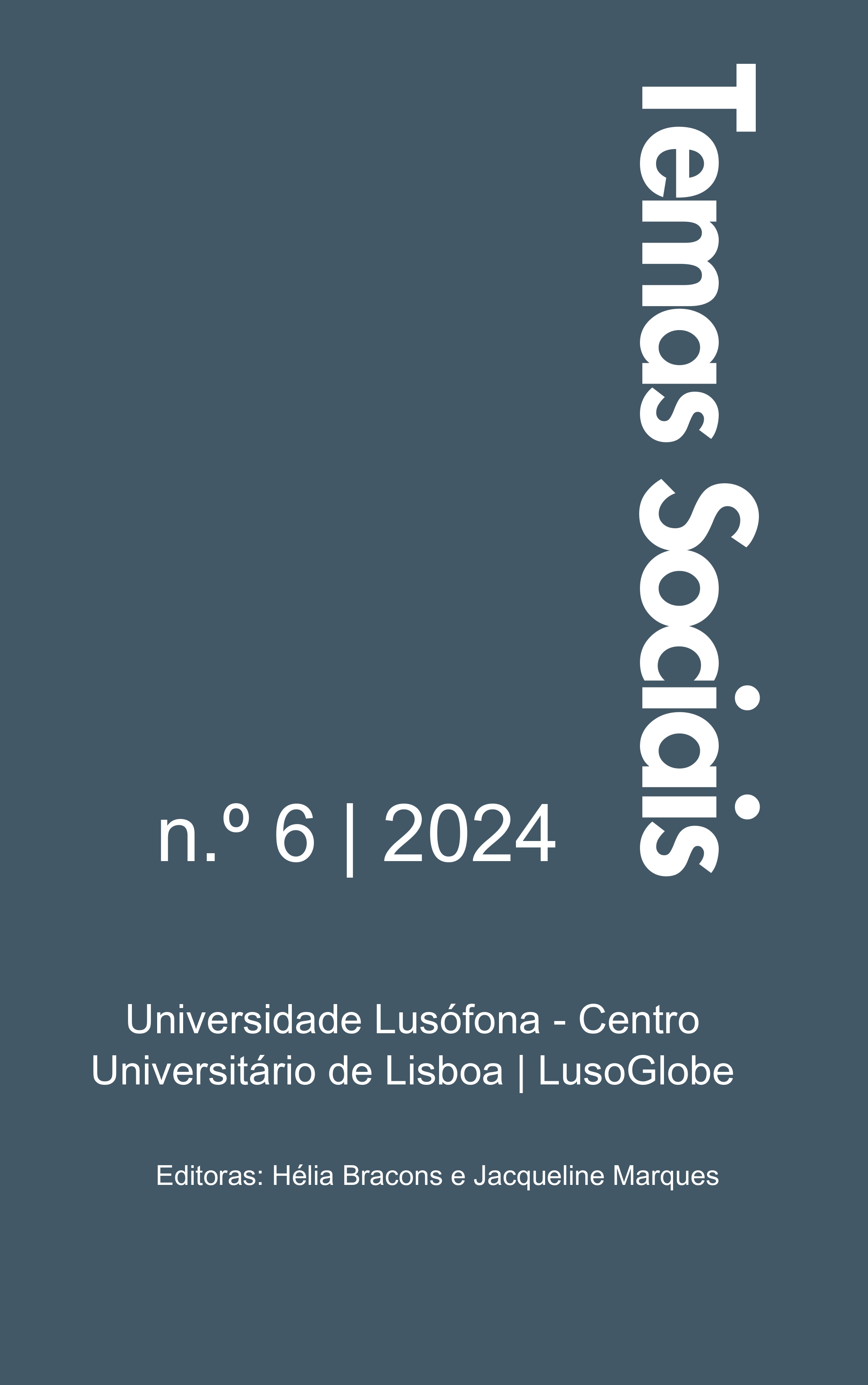Discrimination and HIV/AIDS. Perception of the feeling of discrimination
https://doi.org/10.60543/ts_iss.vi6.9560
Abstract
Despite the significant advances in treatment, social issues continue to have an impact on people with HIV, who are still the victims of on people with HIV, who are still victims of derogatory terms that renew prejudice. This study presents the results of a descriptive study of mixed descriptive study that aimed to understand whether individuals experienced situations of discrimination in formal and informal relationships after learning about the disease. Data was collected using a Google Forms questionnaire applied to 10 people living with to 10 people living with HIV who are followed up at the Abraço Association in the CAAP service. Of the 10 individuals surveyed, the feeling of discrimination is present in just under half of them (4 cases), except the labour camp, where the majority didn't feel comfortable sharing their diagnosis, probably for fear of discrimination and other consequences. These results could be related to the fact that the individuals surveyed had been diagnosed for some time. This could lead to a more relaxed and informed attitude towards the situation and a time distance from their feelings when sharing their diagnosis. Despite this, we can't help but highlight the existence of situations of discrimination in the most informal and intimate groups, the lack of information about the diagnosis in the workplace and, on the other hand, the idea that discrimination is associated with a lack of (or wrong) information, so increasing information to the general population could be a strategy to combat discrimination.
Downloads
Open Access Policy:
The Journal facilitates free, open and immediate access to its contents to foster the exchange of knowledge at a global level.
By submitting their work, the author(s) authorise the publication and dissemination of their work and are responsible for its content.
Code of Ethics:
The Journal is a digital tool that enables the dissemination of knowledge in a globalised society where technology, communication and information occupy a prominent place. The publication promotes equal opportunities facilitated by knowledge. To this end, the Journal is committed to the content it publishes, adopting a code of ethics based on the following principles:
1. The texts received must be original, by the author(s) alone and unpublished, i.e. they must not have been previously published, broadcast or sent to another publication.
2. Authors are responsible for requesting any authorisations necessary to publish their texts, with the respective reference to the sources consulted.
3. That organisation must authorise work funded by an organisation to disseminate the results.
4. the plagiarism detection tool in force will review all work received at Universidade Lusófona - Centro Universitário de Lisboa.
5. The articles received will be evaluated by two experts in the field, guaranteeing the anonymity of the author(s) and the evaluators.
6. Papers involving people as the research subject must obtain informed consent from all of them, with strict respect for the confidentiality of personal data and, if necessary, the decision of the Ethics Committee.
7. The list of authors should only include those who contributed intellectually to the work, i.e., who designed and carried out the research, wrote up and analysed the results and approved the final version of the text.



